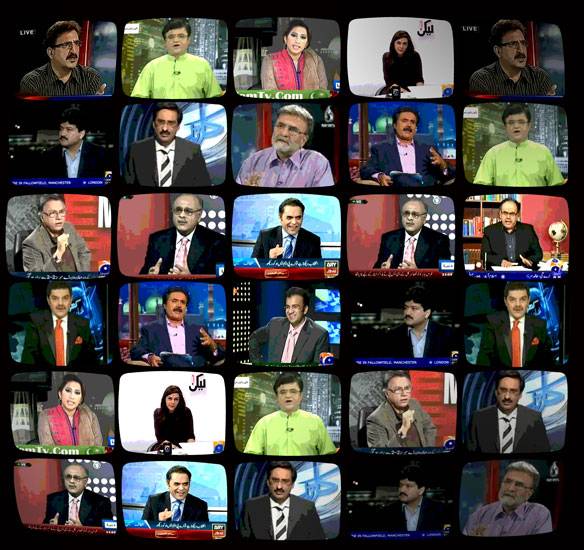No power on Earth can block the truth as Almighty God, being the sole truth Himself, guards it. Nowhere in the human history has the truth ever been suppressed, where it has always revealed itself in some or the other form and with effective consequences.
The British philosopher, John Stuart Mill underlined the need for free speech and thought mainly for three reasons. He believed that freedom to read or write is an important element to expose and reveal the truth, to ensure self-development and self-fulfilment of citizens and to help ensure participation of the citizens in democracy with letter and spirit.
The fundamental ingredient making democracy work is the free flow of information. However, lack of checks and balances in the electronic media has provided a chance to some “opportunist anchors” to follow and propagate their clandestine agendas. The media houses, mostly owned by big business tycoons, must maintain a code of ethics and understand their basic responsibility of educating the masses in a constructive manner. They should encourage the trend of politics and urge the educated people to participate in it for the welfare of the country rather than ridiculing or mocking politicians all the time, ultimately promoting the country’s bad image on international level. The dramatic background music, images of clashes between security officials and civilians and riots, all form a conspiracy of creating sensationalism, luring the viewer to turn on their television sets by feeding information that suits their designs. Whatever the truth is, it does not matter; certain channels are selling their well-designed products and making money and that must be their true motive and basic purpose.
On the other hand, the growing trend in broadcast media for attracting anchors on heavy remunerations, who are masters and experts of creating sensationalism and who can spice up the news with hypothesis, is an example of how media channels are departing from objectivity and balanced reporting and serving their own vested interests.
Instead of instigating onscreen fights for cheap TRPs, media should help in stabilising national institutions and national socio-economic, political and administrative structures by pointing out the flaws and appreciating any good work done by the government or state institutions and organisations in the private sector.
The media as an institution is accountable to the public and responsible for its actions. Media practitioners should stop thinking they are above the law and PEMRA must work on improving the standards of information, education and entertainment and to provide the people with large base of choices to choose from. It should facilitate and govern the establishment and operation of all private broadcast media and distribution services in Pakistan, established for international, national, provincial, district and local or specific target audiences.
Moreover, PEMRA should aim at facilitating the devolution of responsibility and power to the grassroots level by improving the access of people to mass media at local and community level and also ensure accountability, transparency and good governance by optimising the free flow of information.
The significance of media as a medium of inter-connectivity of human affairs cannot be undermined in an age of rapid globalisation. Media should see itself as a motivational force to bring consensus on vital issues like education and health. The prime objective of media must be national stability in all its dimensions. They must create such a social and political climate in, which people could engage themselves in positive and healthy activities and could contribute to the overall national development. The feelings of despondency, frustration and deviant tendencies need to be neutralised. Only an effective and responsible media can do this.






